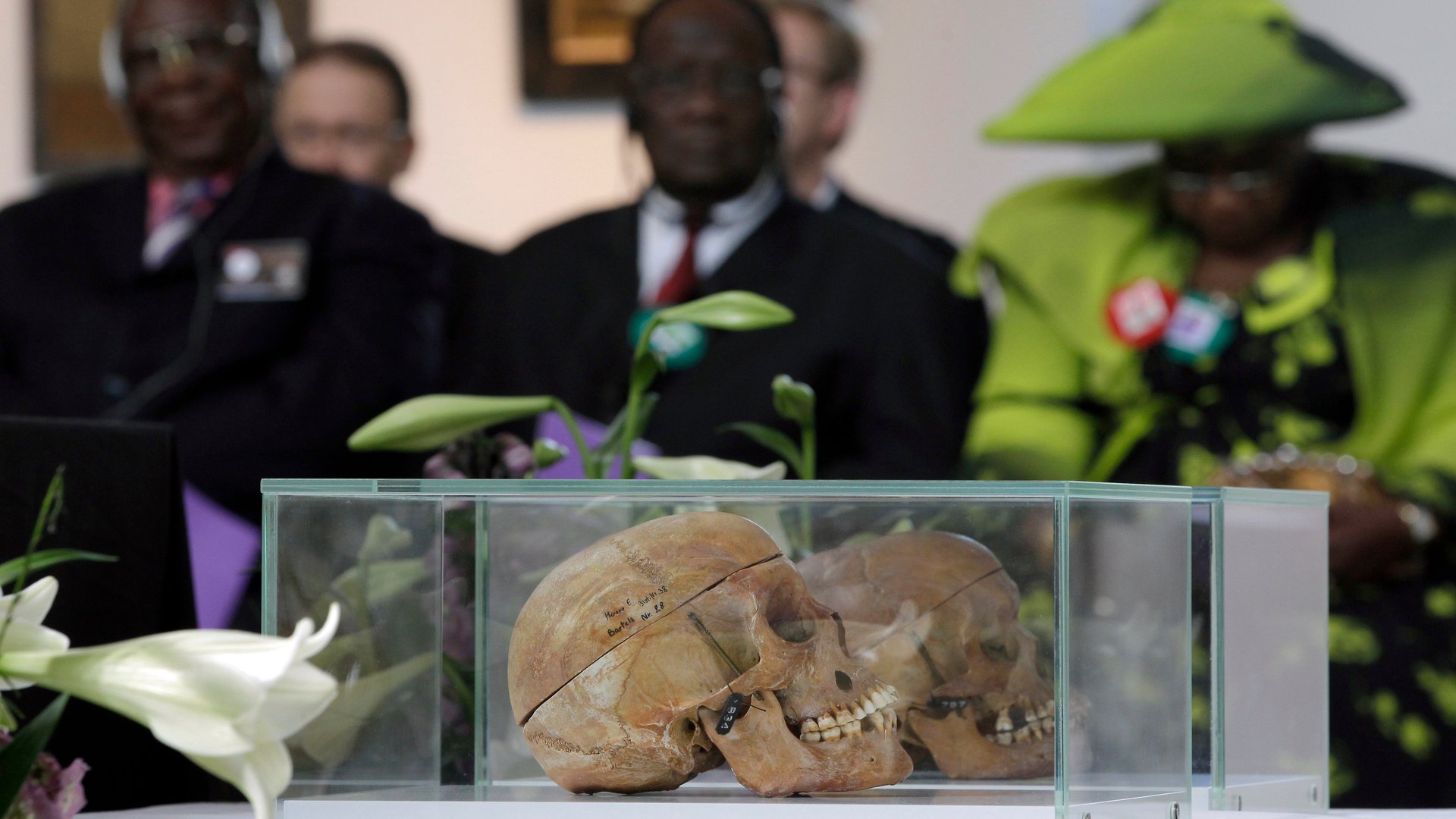Namibia doesn’t want “aid” to make up for Germany’s genocide—it wants $30 billion
An apology and aid just won’t do it. Namibia’s government plans to sue Germany over the atrocities that amounted to Germany’s first, but largely forgotten genocide.


An apology and aid just won’t do it. Namibia’s government plans to sue Germany over the atrocities that amounted to Germany’s first, but largely forgotten genocide.
The Namibian government plans to join an existing suit against Germany, and plan to demand $30 billion in reparations, The Namibian newspaper reported on March 17. The descendants of the Herero and Nama people massacred by the German colonial army took the present-day Berlin government to court in New York after negotiations stalled, the group said in a press release on March 15. The amount they’re asking for is still unknown.
It’s unclear how the Namibian government arrived at the figure of $30 billion—its GDP in 2015 was $11.5 billion—but it hoped this would help bring “a dignified closure to the matter,” said Namibia’s attorney general Sacky Shanghala.
“Lest we be accused as a government that we did not do all that we could have done to ensure that we represented the sacrifices of those who were brutally killed, and those generations that continue to suffer as a result thereof,” Shanghala said of his government’s change of heart.
At the end of World War 1, allies imposed a 132 billion gold marks ($33 billion) reparations on Germany to cover civilian damage during the war.
Namibia’s case against Germany is believed to include points on slave labor, sexual abuse, human trafficking, theft of land, loss of self-determination and psychological scarring. It also reportedly plans to attack the way Germany handled the negotiations around the formal apology and its refusal to pay out reparations to Namibia.
When Germany finally apologized—more than a century later—the federal government was clear that there would be no reparations. Instead Chancellor Angela Merkel’s government planned targeted development projects.
Not everyone supports the Namibian government’s case though. The Herero and Nama representatives told the newspaper this was just an attempt by the government to fill its coffers. While the repercussions of the genocide have caused national divisions in Namibia, some observers say it has barely registered in Germany.
The genocide is widely viewed as the first of the twentieth century, perpetrated from 1904 to 1907. German troops oversaw the extermination of 85% of the Herero population and thousands of the smaller Nama tribe. The skulls of the dead were sent to Germany to be experimented on, and only returned in 2004.